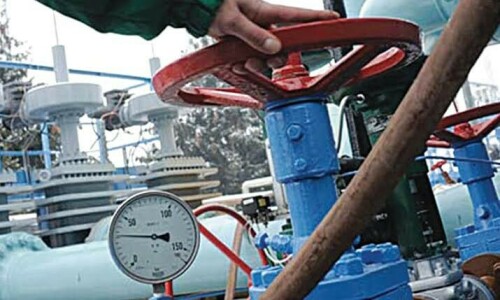PESHAWAR, Feb 15: Manifestos of major political parties have strong statements on women’s rights and welfare, but they lack practical measures to achieve what they claim, says Naheed Aziz, a researcher.Sharing her research “A gender-based critique of 2008 election -- manifestos of key political parties”, supported by Oxfam-GB and published by the Aurat Foundation, Ms Naheed says manifestos of political parties are full of promises.
“There’s more rhetoric, than substance. They (manifestos) lack practical strategy or measures to ensure gender balance in different sectors,” she told a gathering of political workers and civil society here on Friday.
After comparing previous and current election manifestos of the PPP, ANP, PML-Q, PML-N, JUI-F, PPP-S and the MQM, she identifies some positive features in the new manifestos, as well as gaps with possible negative implications for women.
Analysing the manifestos from a gender perspective, says the JUI-F is the most regressive with regard to political status of women and groups other than Muslims. Its manifesto, she says, hardly makes any positive women-specific statement, except the emphasis on establishment of nursing colleges which will offer midwifery, primary healthcare and nursing training.
About the manifesto of the ANP, she says while the document contains strong progressive statements about equality of rights, their practical value reduces as there is no clear measure stated to ensure women’s political representation. Moreover, she says, it adopts the ‘traditional gender blind approach’ when dealing with issues of structural importance in agriculture, trade and industry, and labour rights. Even in education, it only proposes affirmative action for women in the context of adult education. This creates further doubt as to the seriousness of the declarations and the feasibility of their practical implementation, she observes.
The PML-N manifesto, Ms Naheed says, has some strong and positive general statements about equality of rights for women and minorities, and representation of women in key policymaking bodies, but it lacks a clear linkage between these and the measures proposed in other sections. Women specificity, she says, is not only missing from key structural areas, but is also weak in social sectors. It is also ambiguous on repealing discriminatory laws, she adds.
The PML-Q manifesto, according to her, is also stronger on general statements regarding women’s empowerment and equality than actual supportive measures which were in many cases completely missing.









































Dear visitor, the comments section is undergoing an overhaul and will return soon.